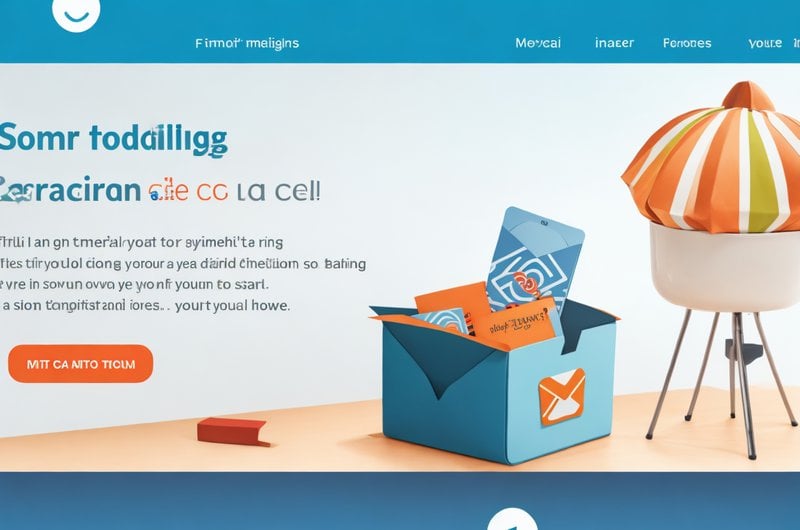Compare Transactional Vs. Promotional Email Campaigns

In today’s fast-paced digital landscape, businesses rely heavily on email campaigns to engage and retain customers.
However, understanding the differences between transactional and promotional email campaigns is crucial in order to optimize their effectiveness.
This article aims to provide a comprehensive comparison between the two, highlighting their respective definitions, purposes, and benefits.
By analyzing these key factors, businesses can make informed decisions to implement the most suitable email campaign strategy, ultimately driving customer satisfaction and maximizing business growth.
Key Takeaways
- Transactional email campaigns provide important information and updates to customers, while promotional email campaigns promote products or services to a targeted audience.
- Transactional emails establish trust, enhance customer experience, and provide relevant information, while promotional emails aim to increase brand awareness, generate leads, and drive sales.
- Targeted and relevant email campaigns based on demographics, psychographics, and behavioral patterns increase engagement and conversion.
- Best practices for promotional email campaigns include personalization and segmentation, using a reputable email service provider, obtaining explicit consent from recipients, and compliance with email marketing regulations.
Definition and Purpose of Transactional Email Campaigns
The definition and purpose of transactional email campaigns play a crucial role in driving customer engagement and facilitating seamless communication between businesses and their clients.
Transactional emails are triggered by specific actions taken by customers, such as making a purchase, signing up for a service, or resetting a password.
Unlike promotional emails, which are primarily used for marketing and sales purposes, transactional emails are focused on providing important information and updates to customers.
These emails are highly personalized and serve as a confirmation of a transaction or an account-related notification.
They are designed to establish trust, enhance customer experience, and provide relevant and timely information.
Transactional email campaigns are an essential tool for businesses to maintain a strong relationship with their customers and ensure smooth and efficient communication.
Definition and Purpose of Promotional Email Campaigns
Promotional email campaigns are marketing strategies designed to promote products or services to a targeted audience through email. The purpose of these campaigns is to increase brand awareness, generate leads, and ultimately drive sales.
Benefits of Promotions
Implementing promotions in email campaigns can significantly boost customer engagement and drive sales. Promotions offer a variety of benefits that can help businesses achieve their marketing goals. Here are five reasons why incorporating promotions in email campaigns can be advantageous:
- Increased customer loyalty: Promotions can incentivize customers to make repeat purchases and develop a sense of loyalty towards the brand.
- Higher conversion rates: By offering discounts or special deals, promotions can encourage customers to take action and make a purchase.
- Improved customer acquisition: Promotions can attract new customers who may be more willing to try a product or service at a discounted price.
- Enhanced brand awareness: Promotions can create buzz around the brand and increase its visibility among a wider audience.
- Better customer engagement: Promotions can spark interest and encourage customers to interact with the brand, leading to increased engagement and potential word-of-mouth marketing.
Target Audience Selection
Three key factors to consider when selecting a target audience for email campaigns are demographics, psychographics, and behavioral patterns.
Demographics refer to the basic characteristics of your target audience, such as age, gender, location, and income level.
Psychographics, on the other hand, delve deeper into the psychological and emotional aspects of your audience, including their values, beliefs, interests, and lifestyle.
Lastly, behavioral patterns focus on the actions and behaviors exhibited by your audience, such as their purchasing habits, online activities, and engagement with previous email campaigns.
By considering these factors, you can ensure that your email campaigns are targeted and relevant, increasing the chances of engagement and conversion.
Key Differences Between Transactional and Promotional Email Campaigns
Transactional and promotional email campaigns serve different purposes and target different audiences.
While transactional emails are primarily focused on providing information or updates related to a specific transaction or interaction, promotional emails are designed to persuade recipients to take a specific action, such as making a purchase or signing up for a service.
Additionally, the effectiveness of the call-to-action in promotional emails plays a crucial role in driving conversions and achieving campaign goals.
Purpose and Audience
When crafting an email campaign, it is crucial to consider the purpose and audience, as these factors will greatly influence the success and effectiveness of the campaign.
Here are some key points to keep in mind:
- Clearly define the purpose of your email campaign. Whether it is to promote a product or service, provide valuable information, or build customer relationships, a clear purpose will help you create targeted and compelling content.
- Understand your target audience. Conduct thorough research to identify their needs, preferences, and pain points. This will allow you to tailor your message and offer solutions that resonate with them.
- Personalize your emails. Use the recipient’s name and segment your mailing list to deliver relevant content. Personalization helps build trust and increases the chances of engagement.
- Craft a compelling subject line. Your subject line is the first impression of your email. Make it attention-grabbing, concise, and intriguing to entice recipients to open and read your message.
- Test and analyze your campaigns. Continuously monitor the performance of your email campaigns, track metrics, and make data-driven decisions to optimize your future campaigns.
Call-To-Action Effectiveness
In evaluating the effectiveness of call-to-actions in promotional and transactional email campaigns, it is essential to analyze the conversion rates and engagement levels over a specified period.
Call-to-actions (CTAs) are crucial elements in email marketing campaigns as they guide recipients towards desired actions, such as making a purchase or signing up for a newsletter.
The effectiveness of CTAs can be measured by the conversion rates, which indicate the percentage of recipients who completed the desired action.
Additionally, engagement levels, such as click-through rates and open rates, provide insights into the effectiveness of CTAs in capturing recipients’ attention and driving them to take action.
Benefits of Using Transactional Email Campaigns
One of the key advantages associated with utilizing transactional email campaigns is the ability to provide real-time updates to customers regarding their order status. This feature ensures that customers are always informed about the progress of their purchase, leading to increased satisfaction and trust in the brand.
Transactional email campaigns also offer several other benefits that can enhance the overall customer experience and drive business growth:
- Personalized communication: Transactional emails can be customized to include relevant information specific to each customer, creating a personalized experience.
- Increased engagement: By using transactional emails, businesses can encourage customers to take specific actions, such as leaving reviews or referring friends, which can lead to increased engagement and loyalty.
- Cost-effective: Transactional email campaigns are often more cost-effective than other marketing channels, such as paid ads or direct mail.
- Brand reinforcement: Every transactional email sent provides an opportunity to reinforce the brand’s message and values, helping to build a strong brand identity.
- Improved deliverability: Transactional emails have a higher chance of reaching the customer’s inbox, as they are triggered by a specific action and are not considered promotional.
Benefits of Using Promotional Email Campaigns
The benefits of using promotional email campaigns include increased brand visibility and a wider reach among potential customers.
Promotional email campaigns are an effective tool for businesses to communicate directly with their target audience and promote their products or services.
By sending targeted emails to a list of subscribers who have opted in to receive promotional content, businesses can create awareness about their brand and drive customer engagement.
Promotional emails can include special offers, discounts, new product announcements, and exclusive content that can entice recipients to take action and make a purchase.
Additionally, promotional email campaigns provide businesses with valuable data and insights on customer preferences and behaviors, allowing them to refine their marketing strategies and tailor their offerings to meet customer needs.
Overall, promotional email campaigns can help businesses maximize their marketing efforts and generate increased sales and revenue.
Best Practices for Implementing Transactional and Promotional Email Campaigns
To effectively implement transactional and promotional email campaigns, businesses should prioritize personalization and segmentation while also ensuring compliance with relevant email marketing regulations.
Personalization allows businesses to tailor their email content to specific individuals, increasing the chances of engagement and conversion. Segmentation, on the other hand, enables businesses to divide their email list into different groups based on various criteria such as demographics, behavior, and interests, allowing for more targeted and relevant messaging.
Compliance with email marketing regulations is crucial to avoid penalties and maintain a positive reputation. Here are some best practices for implementing transactional and promotional email campaigns:
- Use a reputable email service provider (ESP) for reliable delivery and compliance.
- Obtain explicit consent from recipients before sending promotional emails.
- Provide an easy opt-out option to respect recipients’ freedom of choice.
- Test and optimize email content, subject lines, and calls-to-action for maximum effectiveness.
- Monitor email campaign performance to make data-driven decisions and improve future campaigns.
Frequently Asked Questions
How Do Transactional Email Campaigns Help to Build Customer Trust and Loyalty?
Transactional email campaigns help build customer trust and loyalty by providing essential information about a customer’s interaction with a company, such as order confirmations or shipping updates. These personalized and timely messages create a positive customer experience, boosting trust and fostering long-term loyalty.
Can Promotional Email Campaigns Also Be Used for Customer Retention and Re-Engagement?
Promotional email campaigns can indeed be used for customer retention and re-engagement. By offering exclusive deals, personalized recommendations, and valuable content, businesses can keep customers interested and foster long-term relationships, leading to increased loyalty and repeat purchases.
Are There Any Legal Regulations or Guidelines That Businesses Should Follow When Sending Transactional Emails?
Businesses must adhere to legal regulations and guidelines when sending transactional emails. These include providing accurate information, obtaining proper consent, and including an unsubscribe option. Failure to comply can result in penalties and damage to a company’s reputation.
How Can Businesses Effectively Measure the Success and ROI of Their Transactional Email Campaigns?
Businesses can effectively measure the success and ROI of their transactional email campaigns by tracking key metrics such as open rates, click-through rates, conversion rates, and revenue generated. These insights provide valuable data to optimize future campaigns and drive business growth.
What Are Some Common Mistakes Businesses Should Avoid When Running Promotional Email Campaigns?
When running promotional email campaigns, businesses should avoid common mistakes such as sending irrelevant content, neglecting to segment their audience, and not optimizing their emails for mobile devices. These errors can hinder campaign success and engagement.







